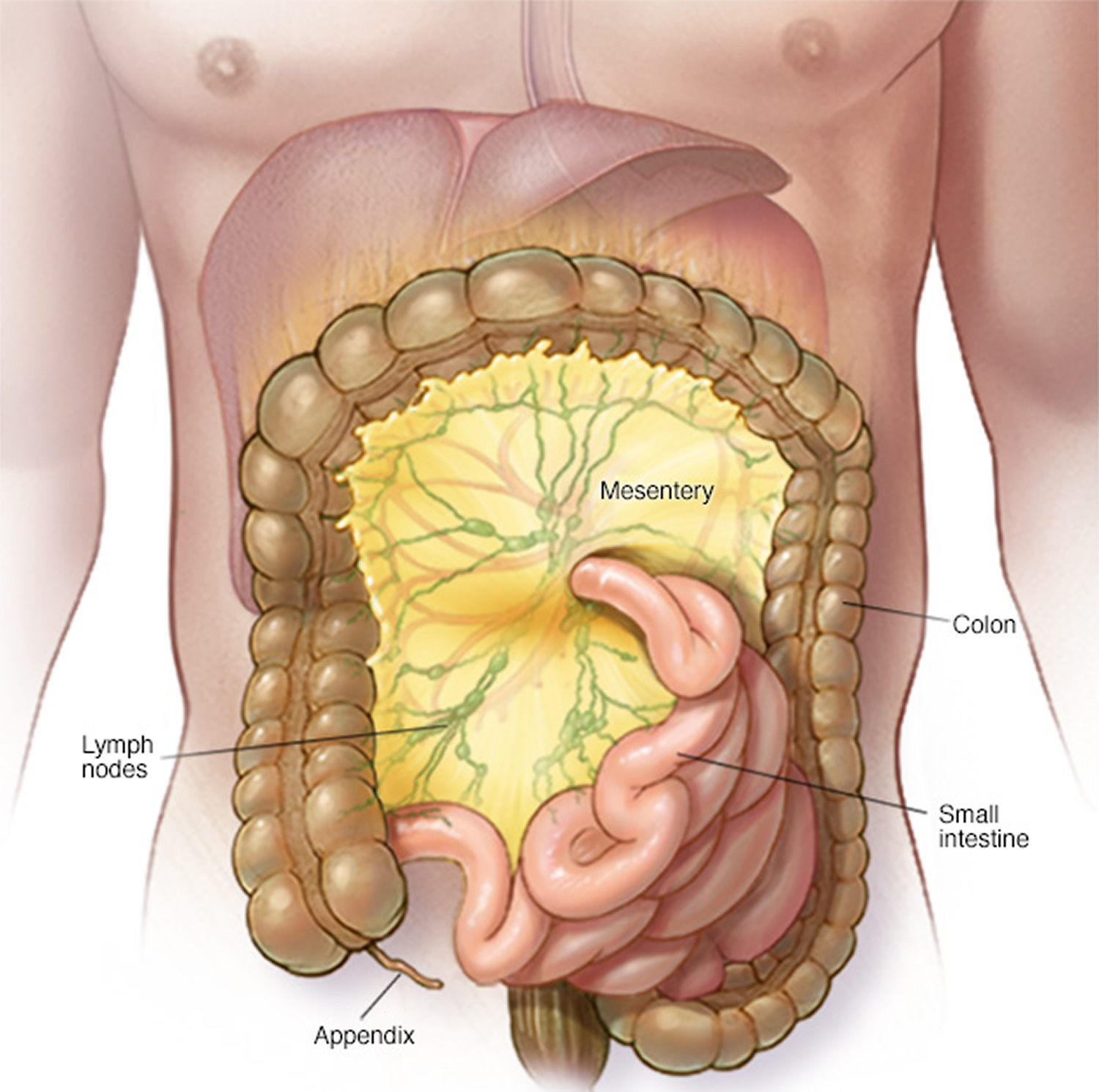Mesenteric Adenitis
OVERVIEW | CAUSES | RISK FACTORS | SYMPTOMS | COMPLICATION | DIAGNOSIS | TREATMENT | PREVENTION | REFERENCES
OVERVIEW
Mesenteric adenitis is a condition that more often affects children and teenagers. It causes inflammation and swelling in the lymph nodes inside the abdomen. Lymph nodes are small, bean-shaped organs that contain white blood cells called lymphocytes. They are part of your body’s lymphatic system. Lymph nodes play an important role in the immune system. They filter out bacteria and other germs from the lymph fluid so your body can remove these harmful substances.
Mesenteric adenitis affects lymph nodes in tissue called mesentery. This tissue connects the intestines to the abdominal wall. Another name for mesenteric adenitis is mesenteric lymphadenitis.
This painful condition can mimic appendicitis or a condition in which part of the intestine slides into another part of the intestine (intussusception). Unlike appendicitis or intussusception, mesenteric lymphadenitis is seldom serious and usually clears up on its own.
CAUSES
The most common cause of mesenteric lymphadenitis is a viral infection, such as gastroenteritis — often called stomach flu. This infection causes inflammation in the lymph nodes in the thin tissue that attaches your intestine to the back of your abdominal wall (mesentery).
Other causes of mesenteric lymphadenitis include bacterial infection, inflammatory bowel disease and lymphoma.
RISK FACTORS
You can get mesenteric adenitis at any age, but it’s most common in children.
Children are more likely to get mesenteric adenitis after:
- a stomach virus
- a cold virus or other respiratory infection
- eating pork contaminated with Y. enterocolitica
SYMPTOMS
Possible signs and symptoms of mesenteric lymphadenitis include:
- Abdominal pain, often centered on the lower right side, but the pain can be more widespread
- General abdominal tenderness
- Fever
- Mesenteric lymph node enlargement
Depending on what's causing the ailment, signs and symptoms might also include:
- Diarrhea
- Nausea and vomiting
COMPLICATIONS
Mesenteric adenitis is usually not serious. However, sometimes it can cause complications that include:
- Abscess, which is a pocket of pus in the abdomen
- Dehydration if your child has severe diarrhea or vomiting
- Joint pain called arthralgia
- Peritonitis, a rare condition that causes inflammation of the membrane that surrounds the outside of the organs in the abdomen
- Sepsis, which is a result of an infection causing systemic inflammatory response syndrome.
DIAGNOSIS
To diagnosis your child's condition, your doctor will ask your child's medical history and perform an exam. Tests might include:
- Blood tests. Certain blood tests can help determine whether your child has an infection and what type of infection it is.
- Imaging studies. An abdominal ultrasound is often used to diagnose mesenteric lymphadenitis. A CT scan of your child's abdomen also might be used.
TREATMENT
Mild, uncomplicated cases of mesenteric lymphadenitis and those caused by a virus usually go away on their own, although full recovery can take four weeks or more.
For treatment of fever or pain, consider giving your child infants' or children's over-the-counter fever and pain medications such as acetaminophen (Tylenol, others) or ibuprofen (Advil, Motrin, others) as a safer alternative to aspirin.
Use caution when giving aspirin to children or teenagers. Though aspirin is approved for use in children older than age 3, children and teenagers recovering from chickenpox or flu-like symptoms should never take aspirin. This is because aspirin has been linked to Reye's syndrome, a rare but potentially life-threatening condition, in such children.
Antibiotics might be prescribed for a moderate to severe bacterial infection.
PREVENTION
You can reduce your risk of developing mesenteric lymphadenitis caused by infection by:
- Washing your hands regularly with soap
- Avoiding close contact with someone who is sick
- Keeping food preparation areas clean to prevent the spread of viruses and bacteria
REFERENCE
- https://my.clevelandclinic.org/health/diseases/17890-mesenteric-lymphadenitis
- https://www.mayoclinic.org/diseases-conditions/mesenteric-lymphadenitis/
- https://patient.info/digestive-health/mesenteric-adenitis
- https://www.ncbi.nlm.nih.gov/books/NBK560822/







































































































